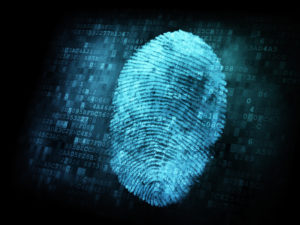UK NACE practitioner-level training

Technical courses for doing TSCM work with an enhanced capability
Eligibility
To apply for these courses, you must be a citizen of one of the following:
- the UK, Australia or New Zealand
- a NATO member country
- an EU member country
You must also be employed by one of the following:
- a government or public body in the UK, Australia, New Zealand or a NATO or EU member state
- a private sector organisation in the UK, Australia, New Zealand or a NATO or EU member state that has a contract, on which you’re working, with a government department in the UK, Australia, New Zealand or a NATO or EU member state
You must be qualified to Certificate or Diploma level in electronics or telecommunications, or a similar subject area. You should also have practical experience in the use and application of radio.
Minimum security clearance
You must also have one of these minimum levels of security clearance:
- UK nationals: Security Check (SC)
- NATO member country nationals: NATO Secret
- EU member state nationals: EU Secret
Please ensure you meet all these requirements before applying.
Availability
Our training courses are delivered throughout the year on an on-demand basis.
We currently have a long waiting list for all of our TSCM courses, but welcome expressions of interest.
Apply
If you’re not sure which course is right for you, fill in the enquiry form or give us a call, and we’ll recommend the course that is best for your technical ability.
To apply for a course, you must:
- check that you meet the eligibility requirements
- complete the enquiry form
Once you’ve completed the enquiry form, we’ll get in touch within 5 working days to get any further information and payment details.
TSCM Non-Linear Junction Detectors (NLJD)
- Length: 2 days
- Venue: Hanslope Park, Milton Keynes
- Cost: Available upon application
- Places: 4
- Course code: TSCM-NLJD
This course introduces the Non-Linear Junction Detector (NLJD) as a TSCM search tool.
The NLJD is a tool that can detect electronic devices using high frequency radio waves. Semi-conductors are a type of electronic component which are present in nearly all modern technologies. These components react to the radio waves from the NLJD and allow hidden eavesdropping devices to be located. This course covers the:
- theory of operation
- strengths and weaknesses of NLJD technology
- discrimination and evaluation of NLJD responses
- practical search exercises in a purpose-built facility
A range of different models of equipment will be introduced during training, though it is important to note that the course is not designed to be equipment specific. Candidates should be able to apply the skills learnt from this course across the full range of NLJD equipment available.
Candidates are welcome to bring their own equipment with them to the training course if they wish. Please note if you are shipping from overseas you must make your own arrangements for the return of your equipment.
TSCM thermal imagery
- Length: 1 day
- Venue: Hanslope Park, Milton Keynes
- Cost: Available upon application
- Places: 4
- Course code: TSCM-TI
This course introduces the Thermal Imager (TI) as a TSCM tool.
Thermal imaging can be used to identify hidden electronic devices which generate heat. This course covers:
- the principles of thermal imaging
- interpreting thermal responses
- practical search exercises
TSCM for VoIP telephony
- Length: 4 days
- Venue: Hanslope Park, Milton Keynes
- Cost: Available upon application
- Places: 4
- Course code: TSCM-VT
This course is an introduction to the application of TSCM to Voice over Internet Protocol (VoIP). Modern telephone systems use the same technologies as computer networks and are susceptible to technical attack. This training course focuses the skills gained in the aided physical search, thermal imagery and defensive radio monitoring principles courses towards effective inspection of VoIP telephones.
Delegates will receive an introduction to the network protocols and technologies involved in VoIP systems, and gain experience in using a structured series of tools and techniques to ensure the integrity of VoIP telephones. Topics covered include:
- Introduction to Networking and VoIP technologies
- Physical infrastructures
- VoIP TSCM
- Endpoints
- Infrastructure
- Software
- Practical exercises
You must have completed TSCM-APS, TSCM-TI and TSCM-DRMP in order to apply for TSCM-VT.
TSCM defensive radio monitoring principles
- Length: 4 days
- Venue: Hanslope Park, Milton Keynes
- Cost: Available upon application
- Places: 4
- Course code: TSCM-DRMP
This training course is designed to introduce candidates to the basic level skills and knowledge required to monitor the radio spectrum effectively for indications of active eavesdropping devices.
Students will learn about the radio frequency (RF) spectrum, detecting suspicious signals and tracing to source.
Possession of a relevant technical background is necessary, and understanding of key principles necessary for the course are reviewed (e.g. defining an Electro-Magnetic wave, fundamentals of radio transmission, propagation, modulation and reception).
Through practical exercises and classroom instruction, emphasis is placed on gaining familiarity with the radio spectrum, competent and effective use of equipment, and development of an effective strategy for radio monitoring, signal detection and trace to source.
The key instruments used on this course are spectrum analysers and SDR applications. Skills learnt can then be applied across a wide range of similar equipment, and students can bring their own systems with them upon prior agreement.
The course covers:
- the principles of radio transmission and reception
- the content and management of the radio spectrum
- common methods of radio and spatial egress attack
- radio monitoring equipment
- signal trace to source methodology
Who this course is for
This course assumes students are technically qualified, with a background knowledge of radio and its workings. You must have completed TSCM-APS before applying for this course.
Other training courses
-
Awareness-level training
Entry-level courses to give you the skills to identify threats and vulnerabilities, explain technical surveillance countermeasures and understand the methods for detecting quick plant eavesdropping devices in secure environments.

-
TEMPEST training
These courses give you the skills to identify threats and vulnerabilities, and apply risk assessed countermeasures

